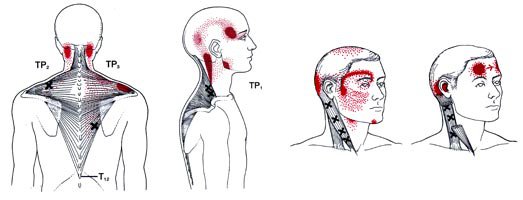Stanley Rosenberg Klinik
About the treatment of headache

A British doctor researching migraines, Andrew J. Dowson, wrote
“Migraine is a common, debilitating problem that affects about 10% of the general population. Migraine attacks result in significant reductions in sufferers' health-related quality of life.
In a UK study, two thirds of migraine sufferers reported that migraine disrupted their lives, with three quarters having to lie down during attacks]. Between one third and two thirds of migraine sufferers in the UK felt that they were not in control of their migraine and the way it affected their day-to-day lives.
Each working migraine sufferer missed an average of 4.4 days of work per year and the equivalent of 12 further days owing to reduced productivity during attacks. The unemployment rate was 2- to 4-fold higher in severely affected migraine sufferers than in the general population. Migraine is a remarkably disabling condition.
Migraine attacks are unpredictable and differ in frequency, duration and severity from person to person. It can be difficult to manage in normal medical care, where it is under-recognised, under-diagnosed and under-treated.
Studies in the USA and France indicated that about half of all migraine sufferers who consulted their general practitioners did not receive a correct diagnosis. Patients may not receive appropriate treatment even when they do consult a doctor and are diagnosed correctly. International and UK studies have shown that only a minority of migraine sufferers take prescription medications and patient satisfaction with their usual acute pain-killing medications is low.
Migraine is an unpredictable, heterogeneous disorder and attacks vary widely in frequency, duration, severity and reported symptoms.